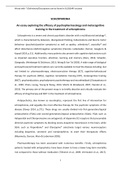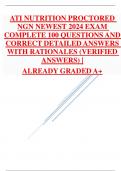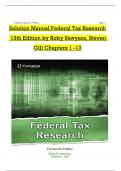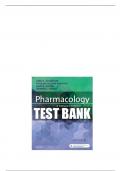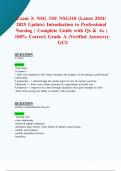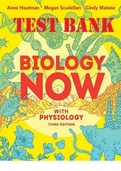Essay
Abnormal psychology: An essay exploring the efficacy of psychopharmacology and metacognitive training (MCT) in the treatment of schizophrenia (with Glossary)
- Course
- Institution
Assignment type: Essay Level: 10 (UK) Grade awarded: A (87%) Referencing style used: APA Word count of essay: 2339 (+ Reference List+Glossary) Number of pages in total: 14
[Show more]
